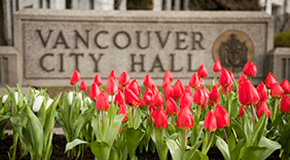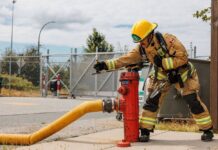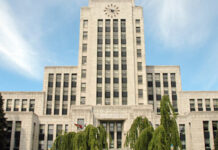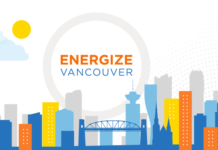IN a report presented to Vancouver City Council this week, the City summarized its efforts over the past year to respond to the COVID-19 pandemic, and to support economic and community recovery across Vancouver.
The impacts to the City’s operations, costs and revenues in 2020 from the pandemic were significant, with operating revenues at year-end $89 million below budget primarily due to temporary closures of facilities and programs to meet provincial health and safety orders, and suspension or reduction of some revenue-generating activities such as parking fees.
Within this context, the City allocated its constrained resources where possible to support pandemic response (actions to address acute issues, risks and immediate impacts) and recovery (actions supporting rebuilding/regaining of what has been lost or disrupted by the pandemic). At the same time, the City continued to deliver its core services to residents and businesses such as public safety, water, sewer and garbage collection, even though the revenues that would normally fund these services were significantly reduced.
The City’s COVID-19 response costs between March 2020 and March 2021 totalled $16 million (not including all staffing costs) and covered critical and, in some cases, life-saving efforts such as: food and hygiene support for Vancouver’s most disproportionately impacted residents; working with Vancouver Coastal Health to implement interventions to mitigate the escalating overdose crisis; increased outreach to people experiencing homelessness; and general sanitation.
A total of $30 million was reallocated from the City’s existing budget to support economic and community recovery, some examples of which include:
- The Making Space for People Program, which featured 40 kilometres of “slow streets” to allow more space for outdoor activities and socializing, along with repurposed street space to accommodate more outdoor line-ups at businesses, 14 pop-up plazas across the city, and more
- Grants to support social and non-profit agencies and childcare operators, including cultural grants to 153 non-profit organizations to support restart and recovery from COVID-19, grants to performing arts-based groups
- Funding for Vancouver Fire and Rescue Services to address the ongoing overdose crisis through funding Fire Medic 11
- Funding for cleanliness and safety in parks
- Reduction in Vancouver Public Library fines to remove barriers to access library services.
A major area of focus for the City’s recovery program is support for local business including establishing a dedicated Business Communications and Support Office, which City Council recently voted to make a permanent service. More than 19,000 inquiries for information or support were received from businesses over the past year via this new office.
Other key initiatives the City put in place to help businesses dealing with challenges during the pandemic included:
- A new temporary expedited patio program (recently extended to October 2021) to allow restaurants to continue to serve meals outside to align with provincial health regulations, with more than 415 permits approved to date
- A temporary liquor licensing program to help some venues expand services, also extended to October
- 69 virtual open houses held for rezoning applications, plus online public hearings to keep development moving forward
- Electronic permit processing and inspections
- The Room to Load program, which provided space for short-term loading near businesses and the Room to Queue program for safe customer queueing, using curb lanes
- Quick response teams put in place by the Vancouver Police Department to address increased street disorder
- Enhanced street cleaning.
On Tuesday, the City also released a preliminary analysis on the economic impacts to local business including from COVID-19 (full report also available online), in partnership with local Business Improvement Associations (BIAs) who are helping to validate the data. The report shows that storefront business vacancies in Vancouver are at 12.1 per cent this spring compared to 9.3 per cent at the beginning of the pandemic, with roughly 988 vacant storefronts (an increase of 29 per cent over spring 2020).
The pandemic has had a negative impact on many of the City’s retail-commercial areas and businesses. Some areas experienced an increase in storefront vacancy over the past year and certain sectors, such as food and beverage and retailers, were hit harder than others. The City plans to implement an annual report card on commercial retail area health as part of the follow up from this year’s report.
At Tuesday’s meeting, Council also directed City staff to identify a funding source for an additional $200,000 for the Business Improvement Association Graffiti Removal Program for 2021 and to have this additional funding continue if, and when, Vancouver receives additional safe re-start funding from senior levels of government.
The City’s pandemic recovery work was informed by, and is aligned with, the recommendations made by the Council COVID-19 Recovery Committee following a series of meetings held between May and July 2020 where Council heard from more than two dozen experts and stakeholders. Of the 124 recommendations from these meetings, 103 are already completed or under way.












